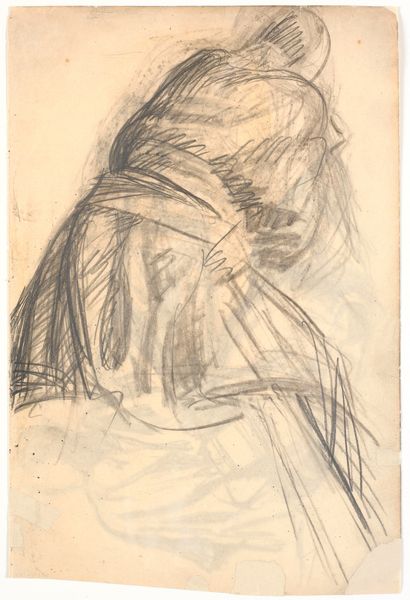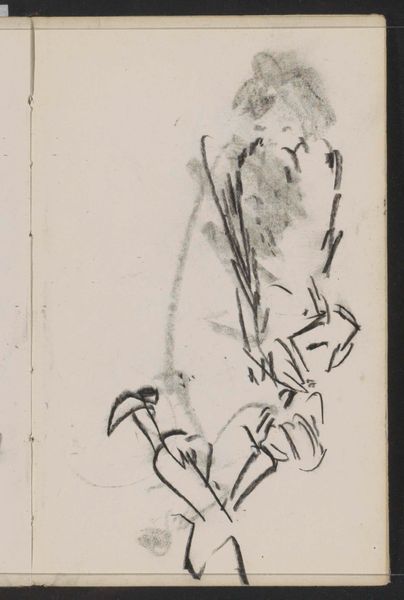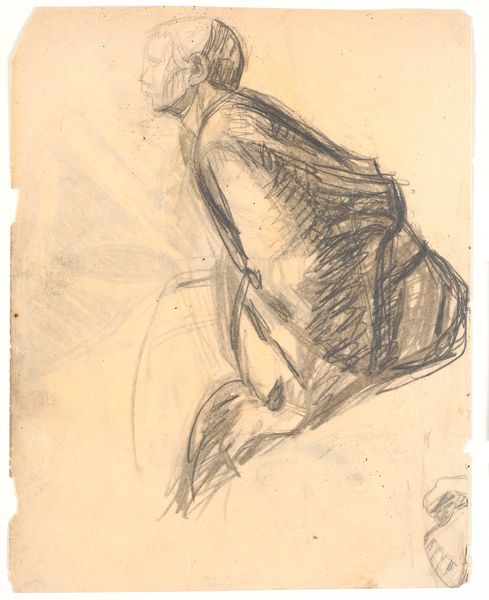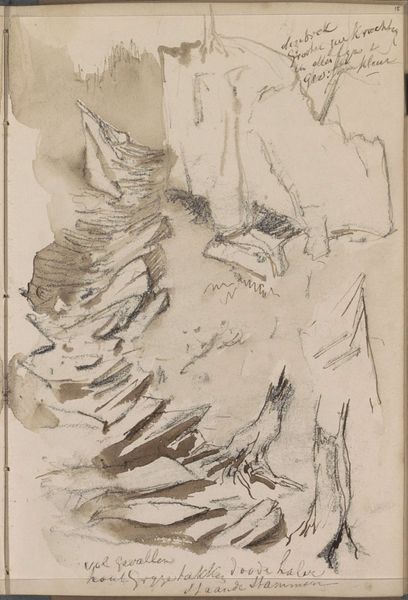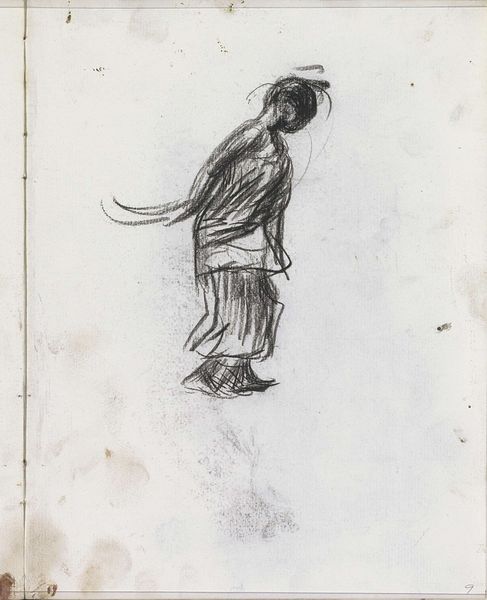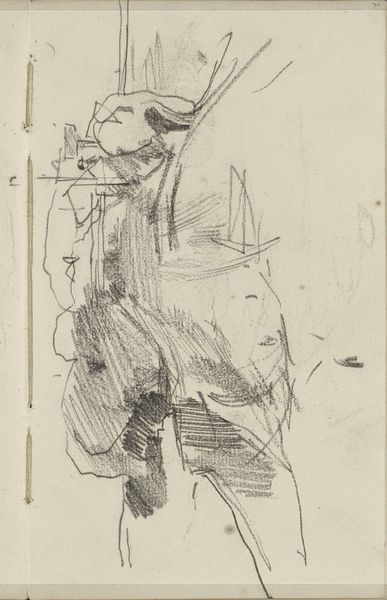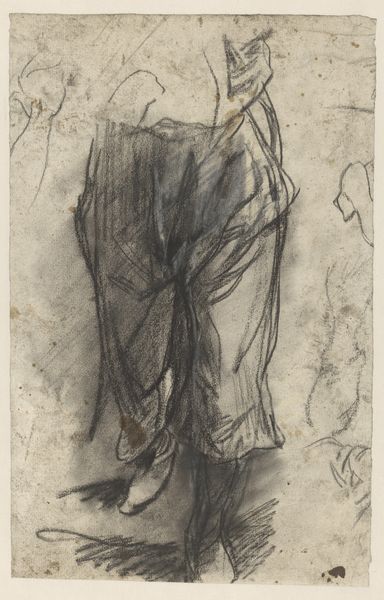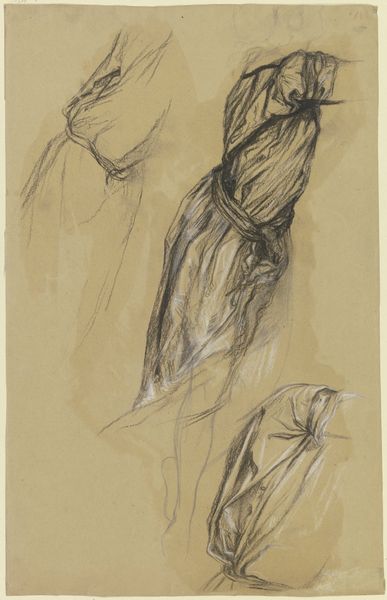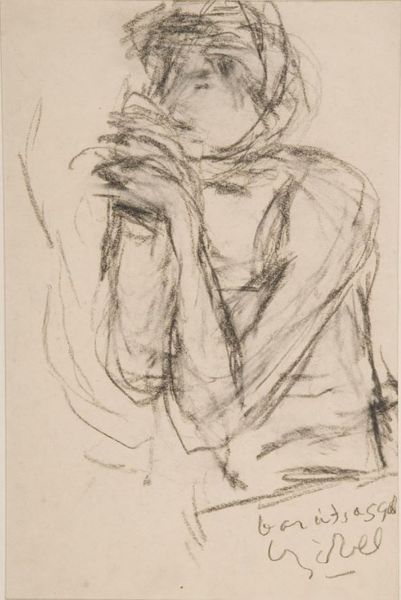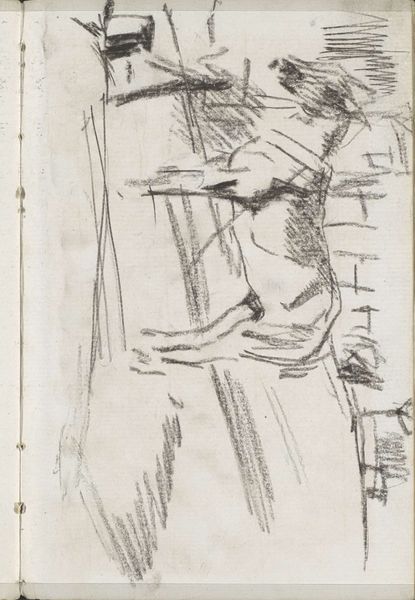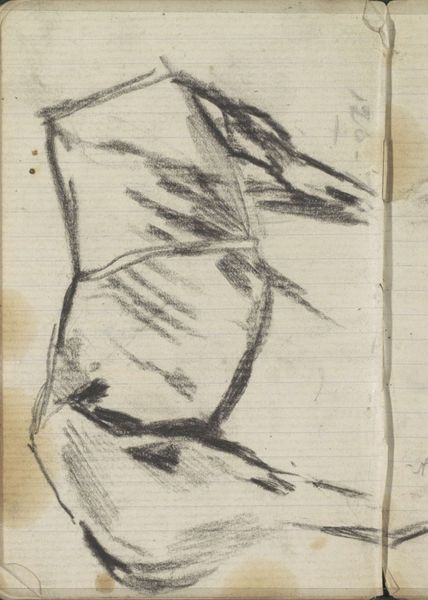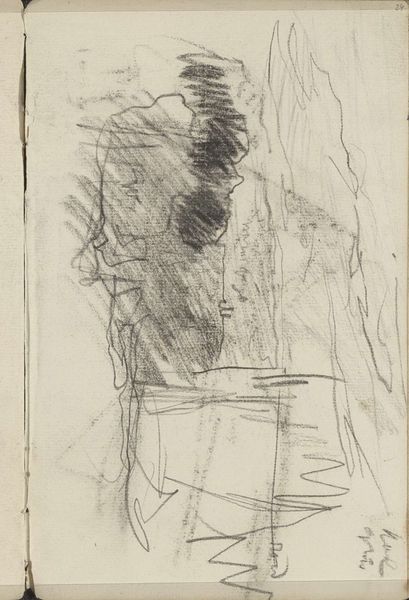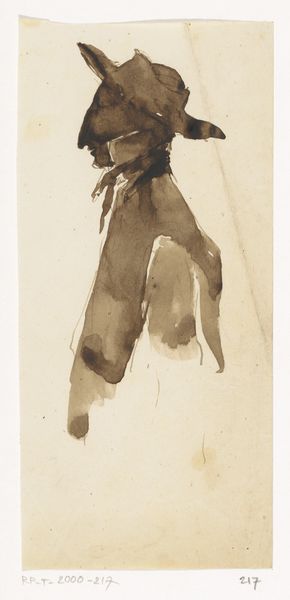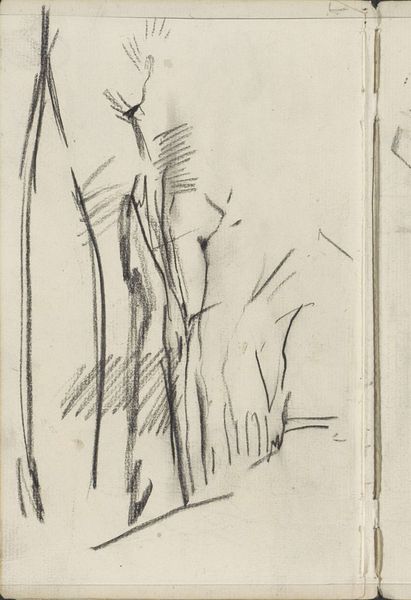
drawing, paper, ink
portrait
drawing
animal
pencil sketch
paper
ink
sketchbook drawing
realism
Dimensions: height 157 mm, width 100 mm
Copyright: Rijks Museum: Open Domain
Curator: We’re looking at “Vulture, sitting on a branch”, an ink and pencil drawing on paper by Jan van Essen. The creation dates of this artwork are estimated between 1864 and 1936. It is held in the collection of the Rijksmuseum. Editor: Woah, my first impression is powerful – I feel like this drawing, even though minimal, just *nails* the solemnity, the gravity, you know, of this particular creature. Sort of stoic and menacing! Curator: It certainly seems so. And indeed, there is an undeniable emotional quality at play. Think about the role of the vulture in myth, history, and ecology. Their position as a creature deeply misunderstood as a symbol of death and decay often overshadows the vital function they play in the ecosystem. Editor: Right! I was thinking that there's a stark beauty to this utilitarian approach in nature—sort of brutal, yet elegant. There's no moral judgment in the drawing either, it's almost like Jan Van Essen is simply observing. Curator: Precisely. Consider how realism was developing as a movement during Van Essen's lifetime, with artists observing and depicting the world as they found it. While this image doesn't belong to any particular artistic movement, we must consider the period in which it was made and what ideological stances might have indirectly found expression in his imagery. Think of the tradition of art about ornithology during the early part of the modern period. The detailed depiction here aligns to a tradition that seeks precision of observation, a fascination with natural life. The pose too might hint at larger themes of death or premonition that can affect us all irrespective of gender, social background, and so on. Editor: Yeah, the detail he captures with what, maybe just a few quick lines, is remarkable. You can really feel the texture of the feathers, the weight of its gaze. It feels like he’s done a really thorough job understanding the animal. I'd have loved to watch Van Essen at work making this piece, a bit like watching David Attenborough I think, you learn about both animal and the person studying the animal. It's captivating. Curator: Definitely. It reveals that careful, nuanced observation, one steeped in understanding of ecological contexts, could perhaps provide an opportunity to challenge existing negative social biases around such birds. Editor: Absolutely. It’s an image that invites a kind of deep empathy through careful observation, and I think that’s something quite special and revealing. Curator: For me, it serves as a potent reminder that representational politics in the natural world remain pertinent for considering current socio-political, economic, and ecological questions about access, discrimination and social mobility today.
Comments
No comments
Be the first to comment and join the conversation on the ultimate creative platform.
